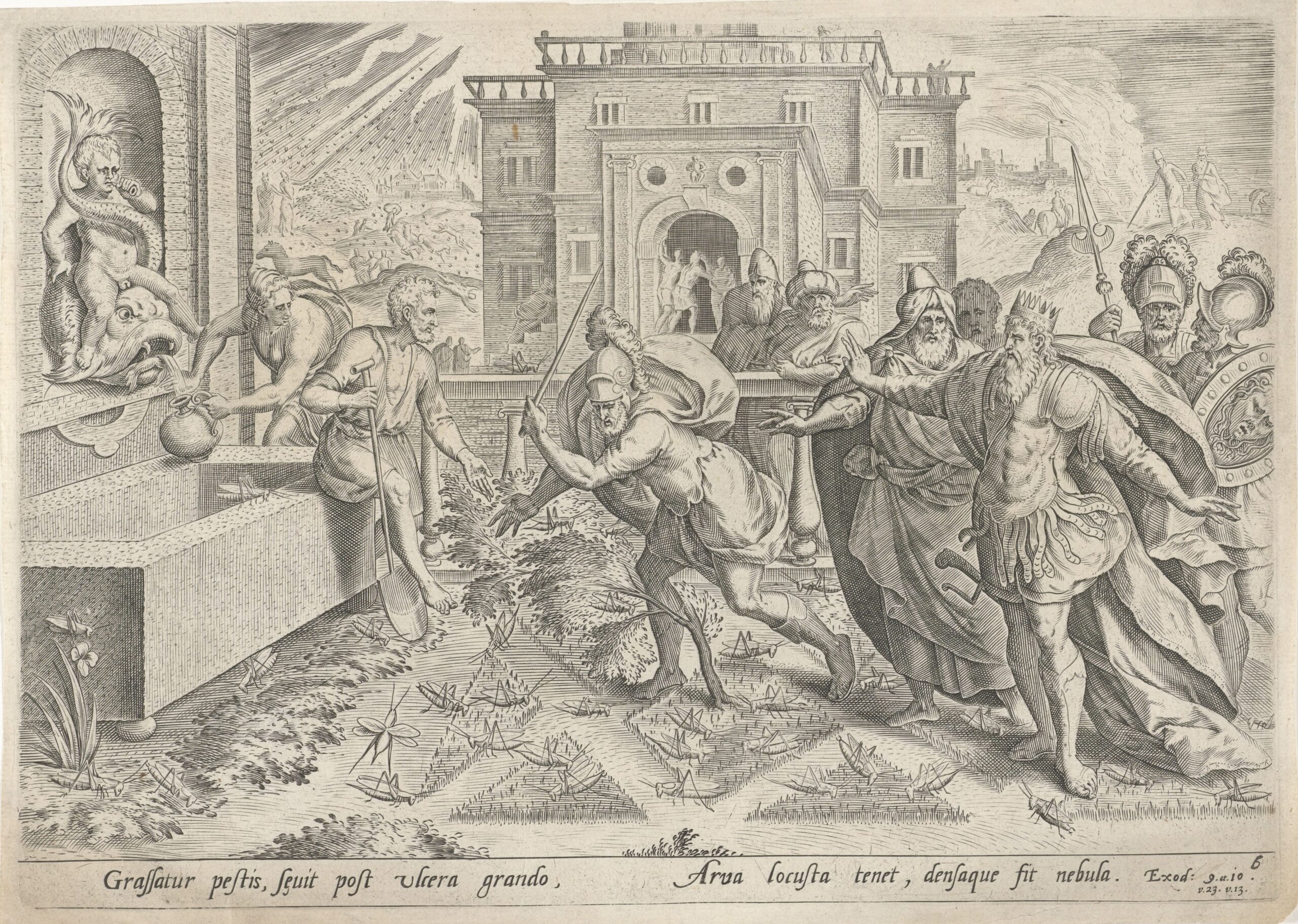Overview of Numbers 11
Numbers 11 provides a profound insight into the challenges faced by the Israelites during their wilderness journey and the divine response to their complaints. The chapter not only portrays the hardships encountered by the Israelites but also underscores the compassionate nature of God in addressing their needs. Additionally, it illuminates the establishment of seventy elders to assist Moses, signifying a significant shift in leadership and governance within the community.
Moreover, Numbers 11 serves as a pivotal moment in the Israelites’ narrative, showcasing the complexities of their relationship with God and the dynamics of communal governance. The chapter’s overarching themes of divine provision, human need, and the establishment of leadership resonate with broader theological and historical implications, shedding light on the intricate interplay between the divine and the human in the Old Testament narrative. It also sets the stage for understanding the prophetic, symbolic, and messianic connections to Jesus and the gospel, providing a foundational context for exploring the spiritual parallels that unfold in the subsequent passages of the Bible.
The significance of Numbers 11 extends far beyond a historical account; it lays the groundwork for understanding the profound connections between this biblical narrative and the person of Jesus Christ. This exploration delves into the prophetic, symbolic, and messianic elements within Numbers 11, offering insights into how this Old Testament chapter foreshadows the ministry, teachings, and redemptive work of Jesus in the New Testament. By examining the themes and events in Numbers 11 through a theological lens, the seamless continuity between the Old and New Testaments becomes apparent, reinforcing the intentional foreshadowing of Jesus’ ministry and the fulfillment of God’s redemptive plan for humanity.
Prophetic References in Numbers 11
The prophetic references in Numbers 11 that connect to Jesus are profoundly significant and provide insight into the messianic fulfillment in the New Testament. The selection of seventy elders in Numbers 11 reflects the future establishment of the Kingdom of God and the leadership of the apostles in the New Testament. This connection is particularly impactful as it aligns with Jesus’ commissioning of the twelve apostles to carry forth his teachings and establish the foundations of the Christian faith.
Furthermore, the provision of meat for the Israelites by God in Numbers 11 can be interpreted as a foreshadowing of Jesus’ miraculous feeding of the multitude. Just as God provided sustenance to the Israelites in the wilderness, Jesus, as the ultimate provider, performed the miraculous feeding of thousands of people with a few loaves of bread and fish, demonstrating his divine authority and care for the physical and spiritual needs of the people.
A striking example of the prophetic connection in Numbers 11 is the selection of the seventy elders, which anticipates the future establishment of the Kingdom of God under the leadership of Jesus. This prefiguration aligns with the New Testament accounts of Jesus commissioning the twelve apostles to spread the gospel and establish the foundations of the Christian faith, symbolizing the leadership and governance under the Messiah’s reign. Additionally, the provision of manna in Numbers 11, a supernatural provision from God, parallels Jesus’ declaration as the “bread of life” in the New Testament, signifying his role as the ultimate sustainer and provider for humanity.
#GospelConnection #Numbers11 #OldTestamentNarrative #BiblicalExegesis #SpiritualLessons #MannaFromHeaven #IsraelitesJourney #DivineProvision #ComplainingIsraelites #MosesLeadership #GodsResponse #MessianicForeshadowing #JesusTeachings #LessonsInGratitude #DivineCorrection #ChristianFaith #BiblicalLessons #RedemptiveHistory #FaithJourney #DivineProvision
Symbolic Elements Foreshadowing Jesus in Numbers 11
The symbolic elements found in Numbers 11 carry profound foreshadowing of Jesus and his ministry. Firstly, the number 11, known for symbolizing disorder, chaos, and judgment, remarkably mirrors the challenges and judgment Jesus encountered during his earthly ministry. From opposition to false accusations, and ultimately to his crucifixion, Jesus faced the disorder and judgment that the number 11 symbolically represents.
Furthermore, the provision of food in Numbers 11 can be seen as a prefiguration of Jesus’ miraculous feeding of the multitude. Just as God provided manna for the Israelites in their time of need, Jesus demonstrated his divine provision by multiplying loaves and fishes to feed thousands of people during his ministry. This symbolic parallel underscores Jesus as the ultimate provider, offering spiritual nourishment and sustenance to those who seek him. Additionally, the establishment of elders in Numbers 11 anticipates Jesus’ role as the leader and shepherd of his followers, a theme that resonates through the New Testament as Jesus shepherds his people, guiding them to spiritual sustenance and growth.
The symbolism of the number 11 extends beyond its mathematical value and ventures into the realm of spiritual significance. The number 11, representing disorder and judgment, aligns with the challenges and opposition Jesus faced during his ministry. This symbolic connection underscores the hardships and judgment Jesus endured, reflecting the profound spiritual implications of the number 11 in foreshadowing Jesus’ redemptive mission. Additionally, the provision of food and the establishment of leadership in Numbers 11 symbolize the spiritual sustenance and leadership provided by Jesus in the gospel narrative, emphasizing his role as the source of nourishment and guidance for humanity.
Messianic Significance of Numbers 11
The messianic significance of Numbers 11 extends beyond its portrayal of God’s provision to encompass a profound foreshadowing of Jesus as the ultimate provider and sustainer. The narrative of the seventy elders being established holds symbolic weight, signifying the future leadership under the Messiah’s reign, thereby emphasizing the anticipation of Jesus’ divine leadership and guidance. This anticipation echoes throughout the Old Testament as a precursor to the fulfillment of this messianic role by Jesus in the New Testament.
One specific instance in Numbers 11 that points to the messianic significance is the provision of meat for the Israelites by God, which parallels Jesus’ feeding of the multitude. This parallel underscores Jesus’ role as the ultimate provider, not only of physical sustenance but also of spiritual nourishment, aligning with his proclamation in the New Testament as the “bread of life”. Moreover, the selection of the seventy elders can be seen as a prefiguration of the apostles and the establishment of the Kingdom of God, representing the leadership under Jesus’ reign, thus solidifying the messianic significance of this event in Numbers 11.
The messianic anticipation and significance in Numbers 11 serve as a bridge between the Old and New Testaments, providing a foundational framework for understanding Jesus’ role as the promised Messiah. It underscores the divine continuity and intentionality in the biblical narrative, enriching the theological implications of Jesus’ messianic mission and the profound spiritual connections that span across the scriptures.
The messianic significance of Numbers 11 is further exemplified by the provision of meat for the Israelites, prefiguring Jesus’ role as the ultimate provider and sustainer in the New Testament. This parallel underscores the spiritual nourishment and sustenance offered by Jesus, aligning with his proclamation as the “bread of life” and the fulfillment of God’s provision for humanity. Additionally, the establishment of the seventy elders signifies the future leadership under the Messiah’s reign, reflecting the anticipation of Jesus’ divine leadership and guidance, thus solidifying the messianic significance of Numbers 11 in relation to Jesus and the gospel.
Gospel Connection in Numbers 11
The Gospel connection in Numbers 11 is deeply rooted in the provision of manna and the establishment of elders, illustrating profound parallels to Jesus as the ultimate provider and leader. The provision of manna to the Israelites in the wilderness directly foreshadows Jesus’ role as the “bread of life,” as described in the New Testament. In John 6:35, Jesus declares, “I am the bread of life. Whoever comes to me will never go hungry, and whoever believes in me will never be thirsty.” This direct connection between the provision of manna in Numbers 11 and Jesus’ assertion in the Gospel of John underscores the continuity and fulfillment of God’s provision through Jesus.
Furthermore, the establishment of elders to assist Moses reflects the leadership model established by Jesus in selecting His apostles. Just as Moses was appointed to lead the Israelites, Jesus selected twelve apostles to lead and spread His teachings. This connection highlights not only the leadership role of Jesus but also the continuation of God’s divine plan for the guidance and governance of His people. Additionally, the complaints of the Israelites and God’s response in Numbers 11 echo the overarching theme of human need and divine provision central to the gospel message. This theme is exemplified in the New Testament through Jesus’ teachings and actions, emphasizing the profound connection between the events in Numbers 11 and the core message of the gospel.
The Gospel connection in Numbers 11 serves as a testament to the continuity of God’s provision, leadership, and response to human need through Jesus. It underscores the harmonious narrative between the Old and New Testaments, illuminating the divine orchestration of events and themes across both eras. This alignment reinforces the theological significance of Numbers 11 in relation to Jesus and the gospel, solidifying the unifying thread that runs through the entirety of Scripture.
The Gospel connection in Numbers 11 is further enriched by the overarching theme of human need and divine provision, which resonates with the core message of the gospel. This profound connection underscores the continuity of God’s provision and leadership through Jesus, emphasizing his role as the ultimate provider and leader in the spiritual nourishment and governance of humanity. Additionally, the complaints of the Israelites and God’s response in Numbers 11 reflect the broader theme of human need and divine provision central to the gospel message, highlighting the seamless narrative continuity between the Old and New Testaments.
The Symbolism of the Number 11
The significance of the number 11 in the Bible goes beyond its mathematical value and ventures into the realm of symbolism and spiritual meaning. In the context of transition, the number 11 represents a pivotal point of change and transformation. This symbolism aligns with the profound impact of Jesus’ ministry, as he ushered in a new era of spiritual understanding. The number 11 serves as a reminder of the transformative teachings and revelations brought by Jesus, signifying a shift from the old to the new, and from darkness to light.
One specific instance that highlights the significance of the number 11 is Jesus’ age at the time of his crucifixion. Traditionally believed to be around 33 years old, this age is a multiple of 11, further emphasizing the association of 11 with transition and revelation. This aligns with the pivotal nature of Jesus’ sacrifice, which marked a profound transition in the relationship between humanity and God, bringing forth a new covenant and the revelation of God’s redemptive plan for mankind. Therefore, the symbolic representation of the number 11 in the context of Jesus and the gospel underlines the transformative and revelatory nature of his mission on earth.
Another example that illustrates the symbolism of the number 11 in relation to Jesus is found in the New Testament. In Luke 11:11, Jesus released new revelation about the character of the Father, emphasizing the spiritual significance of the number 11 in relation to divine revelations and teachings. This instance further solidifies the connection between the number 11 and the transformative impact of Jesus’ message, as he brought forth profound revelations about the nature of God and the spiritual truths that continue to guide and enlighten believers to this day.
The symbolism of the number 11 extends to the transformative and revelatory nature of Jesus’ mission, as highlighted by his teachings and divine revelations in the New Testament. The association of 11 with transition and revelation underscores the pivotal role of Jesus in ushering in a new era of spiritual understanding and enlightenment, signifying a shift from the old to the new and from darkness to light. This symbolism further emphasizes the transformative and revelatory impact of Jesus’ message, solidifying the profound spiritual significance of the number 11 in the gospel narrative.
Transition and Revelation in Numbers 11
The number 11’s association with transition and revelation is deeply intertwined with the events in Numbers 11, shedding light on the profound parallels with Jesus’ transformative ministry and teachings. In the narrative of Numbers 11, the transition of leadership from Moses to the seventy elders stands as a symbolic representation of the spiritual transition and inheritance brought by Jesus in the New Testament. This transition reflects the transformative shift from the Mosaic era to the establishment of the Kingdom of God under the leadership of Jesus, the ultimate spiritual inheritor and revealer of divine truth.
Furthermore, the revelation aspect of the number 11 is exemplified not only by the events in Numbers 11 but also by Jesus’ own teachings and revelations. The New Testament records instances where Jesus released new revelation, particularly in Luke 11:11, where Jesus illuminates the character of the Father, emphasizing the divine nature of God’s provision and care for His children. This revelation echoes the spiritual enlightenment and deep insights associated with the number 11, reinforcing the significance of Jesus’ role as the embodiment of divine revelation and transition in the biblical narrative. The connection between the events in Numbers 11 and Jesus’ ministry underscores the continuity of divine revelation and the seamless transition from the Old Testament to the New Testament, ultimately reflecting the unchanging nature of God’s redemptive plan for humanity.
The association of the number 11 with transition and revelation in Numbers 11 aligns with the transformative teachings and revelations brought by Jesus, emphasizing the profound spiritual significance of this number in the gospel narrative. This parallel underscores the pivotal role of Jesus as the ultimate spiritual inheritor and revealer of divine truth, marking a transformative shift from the old to the new and from darkness to light. Additionally, the revelation of divine truths and insights associated with the number 11 further solidifies the profound spiritual significance of Jesus’ ministry and teachings, highlighting the continuation of God’s redemptive plan for humanity.
Specific Instances Related to Jesus in Numbers 11
In Numbers 11, the provision of meat to the Israelites by God directly relates to Jesus and the gospel narrative. This provision parallels Jesus’ miraculous feeding of the multitude, as recorded in the New Testament. Just as God supernaturally provided meat for the Israelites in their time of need, Jesus displayed his divine power by multiplying loaves and fishes to feed the hungry crowds, demonstrating his role as the ultimate provider.
Furthermore, the selection of elders in Numbers 11 foreshadows the establishment of leadership under Jesus’ authority in the New Testament. The seventy elders appointed to assist Moses in leading the Israelites represent the future leadership structure under the Messiah’s reign. This mirrors the leadership model established by Jesus when he appointed his apostles to carry on his mission and shepherd the early Christian community. The symbolic significance of the elders’ role in Numbers 11 aligns with Jesus’ commissioning of his disciples to spread the gospel and nurture the believers, underscoring the divine parallels between the Old Testament narrative and the gospel accounts.
The specific instances related to Jesus in Numbers 11 serve as profound foreshadowing of his redemptive mission and the establishment of his kingdom. The provision of meat by God to the Israelites prefigures Jesus’ miraculous feeding of the multitude, emphasizing his role as the ultimate provider and sustainer in the New Testament. This parallel underscores the spiritual nourishment and sustenance offered by Jesus, aligning with his proclamation as the “bread of life” and the fulfillment of God’s provision for humanity. Additionally, the selection of elders in Numbers 11 anticipates the establishment of leadership under Jesus’ authority, reflecting the continuation of divine governance and guidance under the Messiah’s reign, thus solidifying the profound spiritual connections between Numbers 11 and the gospel narrative.
The Theological Significance of the Number 11
The number 11 holds theological significance in the context of Jesus and the gospel as it symbolizes transition and revelation. In the Bible, the number 11 is associated with moments of change and the unveiling of divine truths, which resonates with Jesus’ transformative teachings and the revelation of God’s plan for salvation in the New Testament. For instance, the 11th son of Jacob, Joseph, had the gift of revelation and used it to bring transition and prosperity, foreshadowing Jesus’ role as the ultimate source of divine revelation and the catalyst for spiritual transformation.
Furthermore, the number 11 is linked to Luke 11:11, where Jesus released new revelation about the character of the Father. This verse emphasizes the benevolence and generosity of God, aligning with the theological understanding of Jesus as the manifestation of God’s love and mercy in human form. Therefore, the theological significance of the number 11 deepens the understanding of Jesus’ divinely ordained role as the revealer of truth and the source of spiritual transition and renewal in the gospel narrative. It highlights the completeness and divine order represented by Jesus’ teachings and actions, further affirming his central role in God’s redemptive plan for humanity.
The theological significance of the number 11 is further underscored by its association with divine revelation and the manifestation of God’s redemptive plan through Jesus. The number 11’s representation of transition and revelation aligns with Jesus’ transformative teachings and the unfolding of divine truths in the New Testament, signifying a profound shift from the old to the new and from darkness to light. Additionally, the revelation of divine truths and insights associated with the number 11 further solidifies the theological significance of Jesus’ ministry and teachings, highlighting the continuation of God’s redemptive plan for humanity.
Concluding Reflection on Numbers 11 and Jesus
The prophetic references, symbolic elements, and messianic significance found in Numbers 11 collectively contribute to the profound connections between this biblical narrative and the person of Jesus Christ. One of the prophetic references lies in the selection of the seventy elders, which foreshadows the establishment of the Kingdom of God and the leadership of the apostles. This aligns with Jesus’ commissioning of the twelve apostles to spread the gospel and establish his kingdom on earth. Additionally, the provision of meat for the Israelites by God parallels Jesus’ feeding of the multitude, demonstrating his role as the ultimate provider and sustainer.
Moreover, the symbolic elements in Numbers 11, particularly the use of the number 11, symbolize disorder, chaos, and judgment, reflecting the challenges and judgment Jesus encountered during his earthly ministry. This symbolic parallel sheds light on the hardships and opposition Jesus endured, reinforcing the significance of his redemptive mission. Furthermore, the establishment of leadership and the provision of food in Numbers 11 symbolize the spiritual sustenance and leadership provided by Jesus in the gospel narrative, emphasizing his role as the source of nourishment and guidance for humanity.
In conclusion, the connections between Numbers 11 and Jesus are not merely coincidental, but rather intentional and deeply significant. They provide theological depth and spiritual insight into the redemptive work of Jesus, portraying him as the fulfillment of Old Testament prophecies and symbols. These connections serve as a bridge between the Old and New Testaments, affirming the continuity of God’s plan of salvation and the centrality of Jesus in the biblical narrative.



